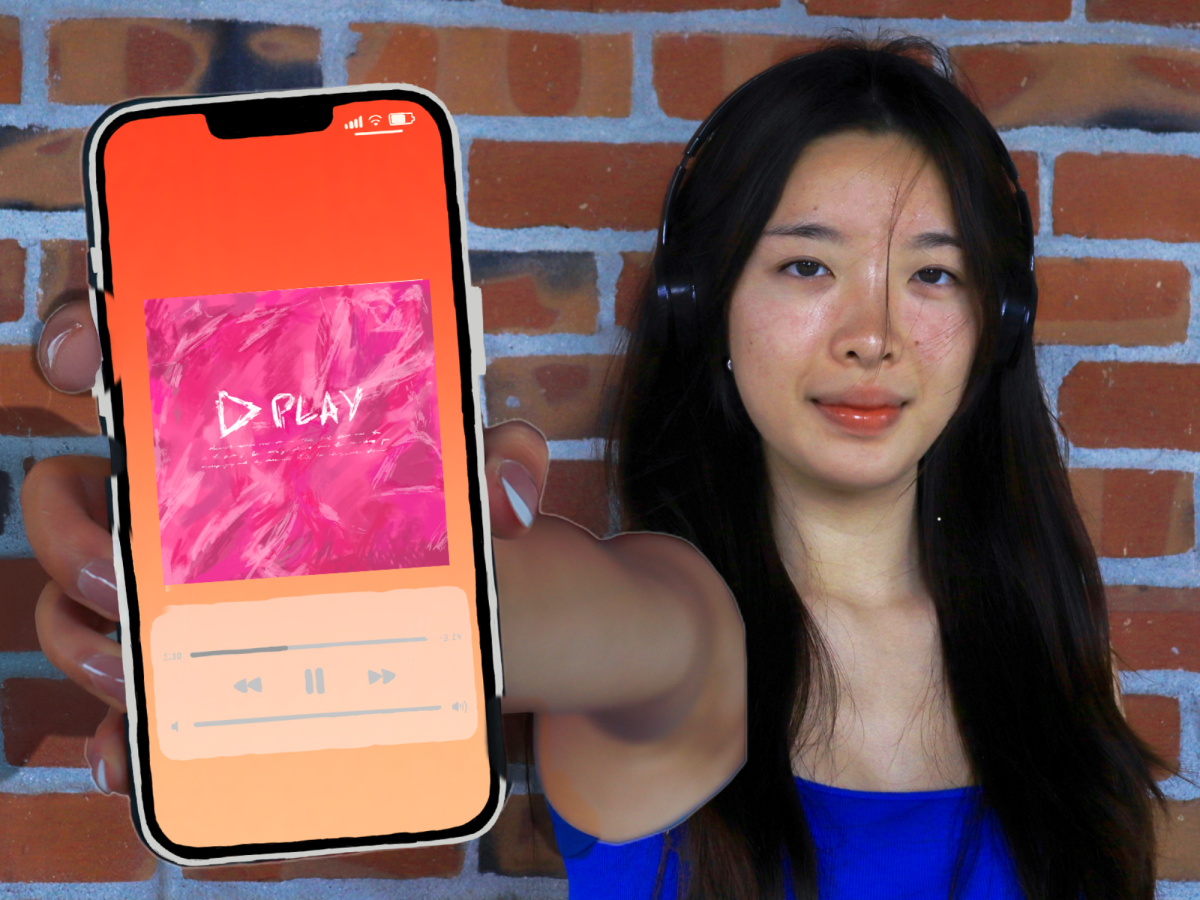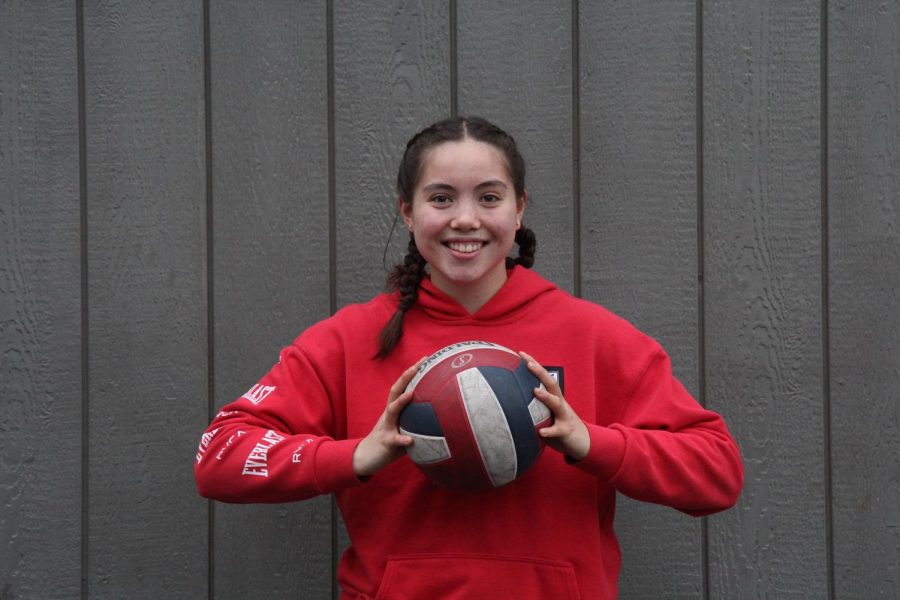A leader in the backcourt
Through volleyball, I discovered that I enjoy making the people around me better, both on and off the court.
March 8, 2022
I watch my teammate swing at the ball, her lanky frame three feet in the air. She is going for a sharp angle shot, but she is not aiming high enough. I step to the right, anticipating the ball. Sure enough, it bounces straight down off the block. My right hip hits the ground as I pop the ball up with my forearm and roll back onto my feet. Here comes another opportunity for a kill, and my teammate tips the ball just over the blocker’s hands into an empty court. Point, us.
The bench erupts in cheers, “Nice spot. Way to see that!”
Through my eight years of playing competitive volleyball, I’ve learned to appreciate and maximize my role as a leader in the backcourt, not in the spotlight but contributing nonetheless. As a libero, I wear a different-colored jersey than my teammates and specialize in receiving serves and digging balls. Essentially, my job is to keep the ball off the ground and provide my teammates with opportunities to score points.
At times, my position is frustrating. I throw my body around the court, playing through bruises and burns, yet my leadership is rarely recognized by spectators or coaches. In the beginning of my volleyball career, I felt overlooked and underestimated.
However, as my team grew up together and eventually became high school juniors playing in the 17U division, we began to truly know each other and formed a connection unlike any other relationship I’ve known. Our friendships off the court helped our ability to flow seamlessly together on the court. My position allows fewer opportunities for recognition from spectators and coaches, but the power I feel from my team’s appreciation makes up for this because of our meaningful friendships off the court.
Volleyball is a game of momentum. When you have it, it’s smooth sailing. Everything clicks, and each point and celebration adds to your advantage. But when you don’t, it can feel like the game is falling apart. Every rally is critical, and a one person’s mistake can discourage the whole team.
I learned my hitters’ strengths and weaknesses by heart. I could recognize any falter in their self-assurance, anything that could impact their ability to take confident swings. I took note of how each of my teammates preferred to be communicated with, whether a simple high five could snap them out of a slump or if they needed verbal reassurance that I’d cover them against a big block. I built trust with every person I passed next to; we each knew that the other could step in and cover more or less of the area between us. I took these lessons beyond volleyball as well. Every person I meet is unique in their personality and needs, and as a leader, I need to customize my approach to each and enter interactions with intention.
Glory matters less to me than it used to. Now, my teammate’s game-winning kill brings me all the fulfillment I need. Their wins are my wins. I’ve led my team through battles on the court with my unwavering presence and support toward them individually. Through volleyball, I discovered that I enjoy making the people around me better, both on and off the court.



































































